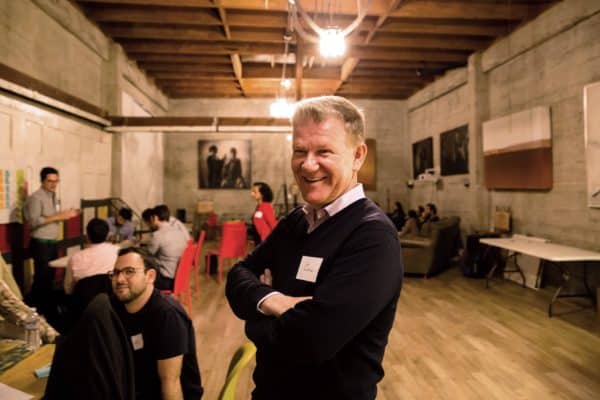
Earlier this month, Crowdfund Insider reported on Varo Money closing on a huge $241 million Series D funding round. Varo Money is a top US-based digital-only bank seeking to challenge entrenched traditional banks while battling other Fintechs.
In the realm of Fintech, digital banking is a hot sector as many observers believe the old branch and fee model is outmoded and on the way out. As the thesis goes, real estate is expensive and unnecessary. Combine this with a banking culture that is slow to update, green-screen legacy tech, gazillions of branches staffed with hundreds or thousands of employees, it is hard to imagine how old banks can survive. Today, especially if you are from a younger demographic, you want to manage all of your finances on your iPhone. No trip to the bank branch, nor waiting in a line, needed.
In the US, there are a growing number of digital banks, or Fintechs providing bank-like services, competing for your business. This is good for consumers, of course, as competition tends to lead to better services at a lower price. But while there are many Fintechs calling themselves a bank, there are few that have actually received their very own bank charter. Varo Money is poised to be the first Fintech in the US to go it alone and endure the grinding process to become a federally chartered digital-only bank minus any shortcuts.
The Office of the Comptroller of the Currency (OCC), the main bank regulator in the US, gave preliminary approval for a bank charter in September of 2018.
In February of 2o2o, Varo announced that the Federal Deposit and Insurance Commission (FDIC), the US regulatory agency that provides vital deposit insurance for account holders in the US, had provided its seal of approval.
Varo Money is now in the final steps of the extensive approval process to receive a full bank charter.
As a consumer, I must admit that I hate my bank(s) – so I am a bit biased but I do not believe I am alone.
Every time I see the nickel and dime fees for services that should be fee-free, it is frustrating and upsetting. Don’t get me started on the fees assessed on foreign charges that border on theft.
Yet old banks need these fees otherwise the brick and mortar bank turns into the bank of the Titanic, sinking slowly in its inevitable demise. Varo Money founder and CEO Colin Walsh states that traditional banks spend $0.60 out of each $1 on overhead. Think about that for a moment. Approximately 60% goes to operating legacy technology, managing physical locations, etc. – none of which a digital bank needs to do. The digital banks versus brick and mortar banks battle is a great example of the innovator’s dilemma. Old banks are loathe to give up the money mill of excessive fees, meanwhile, agile Fintechs are slicing and dicing financial services leaving old banks little reason to exist. Sure, old banks are providing digital banking services and they are not standing still partnering with Fintechs, acquiring some firms while closing bank branches. But is it enough?
See our discussion with Colin Walsh below.
Congratulations on the recent funding round. What are your expectations for the use of capital? Will marketing/promotion be a big part of the new funding?
Colin Walsh: We intend to use the funding to invest in new products that our customers need right now and as we open Varo Bank — including short-term lending and credit building and repairing solutions as millions see their finances impacted by COVID-19’s effect on the economy.
We have seen very strong results for several digital banks in the UK/Europe market, but the market is very different in the US with more/diverse types of competition and highly fragmented markets. How do you see Varo’s growth plan proceeding?
Colin Walsh: The UK/Europe banking market is indeed quite different from the US banking market. A lot of market traction for European Fintechs in their home markets were on specific pain points of the European consumer – particularly FX fees and ATM fees. If you look closely, many of the European Fintechs were used as secondary accounts and as such are struggling in a COVID environment where travel is restricted.
The US consumer is more focused on high fees from traditional banks for everyday transactional banking – account maintenance fees, minimum balance fees, overdraft fees – that add up to hundreds of dollars per year for the average American. Varo is designed to be our customers’ primary bank account and indeed we see high rates of direct deposit, which have been growing during the COVID crisis. Similarly spend volume has continued to grow in recent months as our customers are largely spending their income on necessities, not high dollar discretionary purchases. In the current environment, we’ve been able to accelerate our growth and with a lower acquisition costs.
In some other jurisdictions, regulators moved quickly to embrace the concept of a digital bank – creating a bespoke path for approval. Why has the path in the US been so laborious? Is it due to the aggressive lobbying by traditional financial service firms?
Colin Walsh: Lobbying may play a part, but more importantly, the two markets are just very different.
The US has thousands of community banks and credit unions that don’t have a clear parallel in European markets and thus the competitive dynamics are a bit different. Europe after the financial crisis believed that one of the root causes was a lack of competition in banking and thus adjusted the regulatory regime to allow new entrants. The US regulators did not take that path, indeed one of their big lessons from the crisis was that the regulated system needs to be protected and closely supervised.
We’re proud to have gone through this difficult process – it makes us a stronger institution for our customers and safeguards the entire financial system in the US.
Varo Money has been working on becoming a chartered bank for years now. Why does it take so long? Do you believe policymakers should create a unique path for digital banks to regulated? And, if so, how would this work?
Colin Walsh: Part of the challenge in the US is that we have of course three banking regulators. And to obtain a full national bank charter, you must follow the application and exam processes of each regulator, which does tend to extend the timeline.
The interim Comptroller of the Currency just announced an “advanced notice of public rulemaking” (ANPR) addressing digital bank rules including blockchain/crypto. What are your thoughts on that? Will you be submitting comments?
Colin Walsh: Varo is not at this point looking to make significant product moves into crypto, though we follow the space closely.
Traditional banks are closing branches at a faster pace and incorporating more Fintech aspects into operations. You have expressed your opinion that their scale and complexity is a problem. Can old banks ever change? Will they be able to compete with more agile banks like Varo Money in the long run?
Colin Walsh: Some will succeed in executing this transformation – but it will be very expensive and it will be slow. It’s a classic innovators’ dilemma – it’s not just the cost and complexity of adapting to new technology, it’s also the challenge of shifting the entire business model which is predicated on physical distribution.
There are success stories in traditional banking – Bank Leumi and Pepper in Israel for one – but it’s very hard to do.
Once you have completed the bank charter odyssey, what will change at Varo Money for your bank? What will change for your customers?
Colin Walsh: As the first Fintech with a national bank charter, and within the regulated system, Varo will be able to offer a range of tech-driven products, solutions, and experiences that no Fintech and no traditional bank can. Varo Bank will launch on our own cutting-edge technology platform which will power true financial innovation across a range of payments, deposit, and credit products, along with advanced personalization, predictive insights, and virtual communities.
America needs a bank that recognizes the decades of financial inequality and chooses to do something about it, and that has always been and continues to be Varo’s mission.
What are your expansion plans for 2021? What about crossing the Atlantic like several European contenders have done to provide bank services in the US?
Colin Walsh: At this time we are focused on our US customers and providing much-needed financial and banking services.


